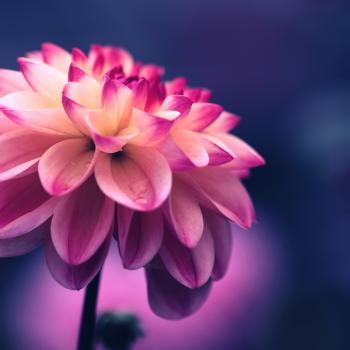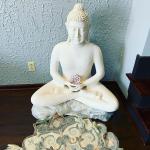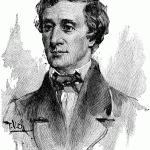 Vocation: “a summons or strong inclination to a particular state or course of action; especially a divine call to the religious life” (Merriam-Webster dictionary).
Vocation: “a summons or strong inclination to a particular state or course of action; especially a divine call to the religious life” (Merriam-Webster dictionary).
What is my vocation?
I have experienced this summons to particular actions at various points in my life. After growing up with books as a ‘third parent’, I felt a strong calling to become a writer myself. When I haven’t written for a while, this calling starts to nag at me like a child tugging on my skirts. I have always been deeply curious about people (that sounds better than being nosey) and had a desire to help people, and so I trained as a psychotherapist.
Seven years ago I felt the biggest summons of all, to put my Buddhist practice at the centre of my life, and to help others connect with either the form of Buddhism I practice, or with their own path to the divine.
I have tendencies towards workaholism and perfectionism, and so can drive myself quite hard. These vocations all have the potential to overwhelm me. I beat myself up when I’m not ‘writing enough’ even if my schedule is full, or I abandon myself in order to help others. When it comes to my vocation as a Priest, I can feel that what I do is never enough, and that I could always be offering more – creating more spaces where I listen, offering more classes, keeping the temple tidier, doing more outreach work… there is always a big list of things I could be doing.
A few years ago I came across one of those books that will stay with me for the rest of my life. It is ‘The Contemplative Minister’ by Ian Cowley, an Anglican Priest. In it he is very clear about the first priority of those who are (like me) drawn to a life of ministry:
“…the heart of priestly ministry is, first, the call to an ever deepening relationship of love for God, and, second, to lead others into that relationship and to enable them to respond to God in loving service and mission.”
I felt such relief when I read this. The invitation here is for me to prioritise my own relationship with the Buddha, and to prioritise it over everything else. The time I spend doing practice, reading sutras or quietly ‘hanging out with the Buddha’ in nature is the most important time in my day. It is more important than thinking about how I can spread the Dharma, or how best to serve our congregation here. It is more important than the myriad of appointments, mentoring sessions and meetings in my diary. Before I do anything else, I need to make time to deepen my refuge.
Later Cowley says “Our call is not only to know God but to enjoy him forever. We are to find time to enjoy God, to gaze at the beauty of all that he has made, to bless him and thank him and worship him from our hearts. When the spirit of worship and thanksgiving dries up, something vital to the whole work of ministry is lost.”
I think that this advice can be generalised to other forms of vocation. If I was a writer who never made the space to read, or enjoyed reading, how would I learn how to use language? If I was a psychotherapist who had never had any therapy myself, how would I know what it felt like to enter the therapy room for the first time, or how difficult it is to face up to our shadow? How can we bring something to others, whether that ‘thing’ is making chairs or teaching or tidying gardens or leading teams, if we have lost our own love for chairs, tidy spaces, or the joys of being skilfully led?
What is your vocation? Is it something that you’re already engaged with, or is it just a quiet whisper that you only hear when you pause from your busy life? How can you begin to nourish whatever is at the centre of your vocation? How can you remind yourself how important it is to enjoy what you do, or to feel passionately about it?
Shhh. Listen. What calls to you?
What do you love?
*
Brown heart hanging decor from Pexels.com with gratitude











